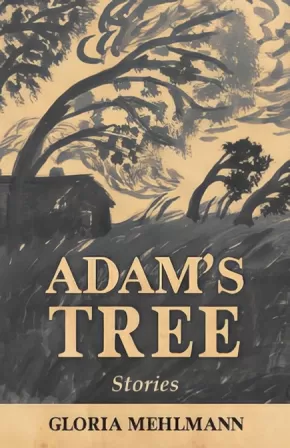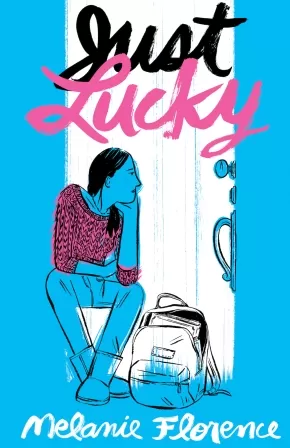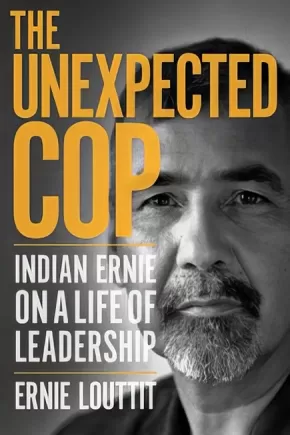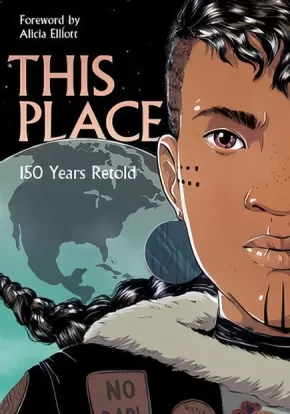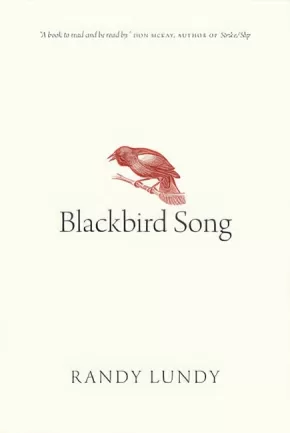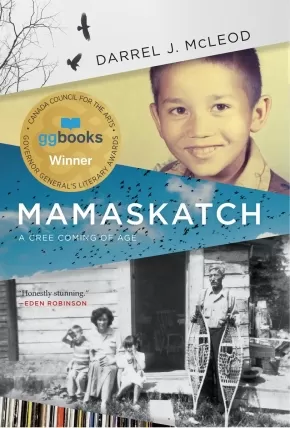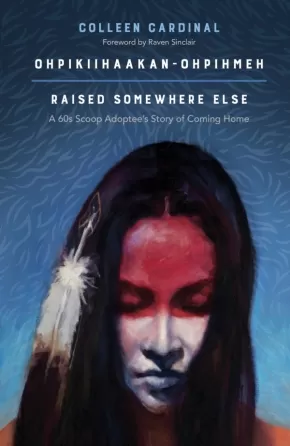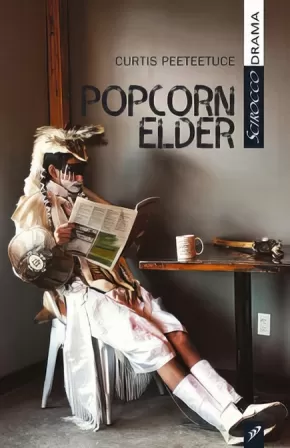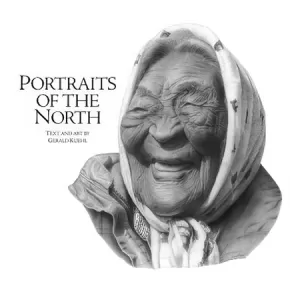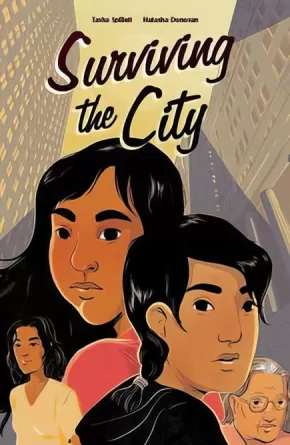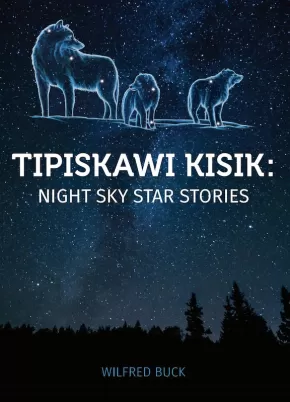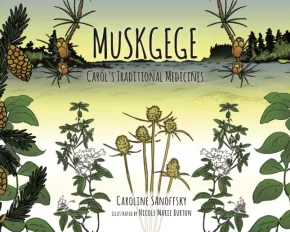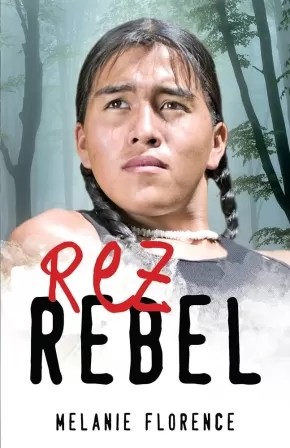
Cree (Nehiyawak)
121
-
135
of
169 Results;
Sort By
Go To
of 12
Adam's Tree
$22.00
Format:
Paperback
Text Content Territories:
Indigenous Canadian; First Nations; Anishinaabeg; Ojibway; Saulteaux;
Grade Levels: 12; University/College;
ISBN / Barcode: 9781989274057
Synopsis:
Synopsis:
Adam's Tree is a fictional account of life on the Cowesses First Nation in Saskatchewan during the 1940's and 50's. This period in history finds forces like regulatory policy, World War II, systemic racism, and the long reach of the depression defining reserve life and rural relationships. These short stories are told from the perspective of various characters on the reserve: an Indigenous teenage girl named Sophie, men who return to Cowesses after the war, struggling with untreated and unacknowledged PTSD, settlers like the local school teacher and the "Indian agent".
This book contributes to the dialogue on reconciliation, freeing Indigenous voices during a period of time that is rarely written about. It encourages readers to examine the sources and meaning of today's inheritance of complex relations.
Additional Information
220 pages | 5.50" x 8.50"
Just Lucky
$13.95
Format:
Paperback
Text Content Territories:
Indigenous Canadian;
ISBN / Barcode: 9781772601046
Synopsis:
Synopsis:
There’s nothing lucky about your family falling apart.
Lucky loves her grandparents, and they are all the family she really has. True, her grandma forgets things…like turning off the stove, or Lucky’s name. But her grandpa takes such good care of them that Lucky doesn’t realize how bad things are. That is until he’s gone. When her grandma accidentally sets the kitchen on fire, Lucky can’t hide what’s happening any longer, and she is sent into foster care. She quickly learns that some foster families are okay. Some aren’t. And some really, really aren’t.
Is it possible to find a home again when the only one you’ve ever known has been taken from you?
Reviews
“This fast-paced novel is a sensitive portrayal of the challenges of coping with dementia, and the exploration of the feelings related to having a loved one suffering this condition feel authentic. An uplifting and hopeful #ownvoices novel revealing the complexities of foster care and the heartbreak of dementia.” - Kirkus Reviews
“Just Lucky is an amazing book, and Melanie Florence draws together many contemporary issues faced by families and kids today…Highly Recommended.” - CM: Review of Canadian Materials
“This book was perfect. It was incredibly well written, I devoured it in one sitting. The characters felt so real, one minute I was crying, the next I was laughing. For me, that's when you know a book has done it's job. I loved how raw and honest it was, it deals with lots of different things. I think it's a real eye-opener about foster care.” - Karis Tomic, Book Reviewer
“There were many layers to this story. Some heartbreaking, some touching, some laugh out loud moments and to be quite honest, some very hard to read. It kept my attention so much that I devoured this in just an hour and a half.” - Jessica Mac, Book Reviewer
“What this book does best is bring the emotional roller coaster of being in the foster care system to the page with such vividness that it sucks you in. Just Lucky is heartfelt, heartbreaking, but hopeful at the same time and it's all balanced perfectly.” - Hristina Petrov, Book Reviewer
“The diverse social issues mentioned in this plot are the ultimate reasons why I enjoy the book, especially the fact that the representation of race was indeed poignant and genuine all throughout.” -Kristara Septa Araya, Book Reviewer
Educator Information
Recommended for ages 13 to 18 (Grades 8 to 12).
Keywords: Foster Care, Dementia, Grandparents, Indigenous, High School, Bullying.
Subjects: Character Education (Family and Friendship, Bullying, Prejudice and Tolerance); Reflecting Diversity (Indigenous, Foster Children)
Additional Information
248 pages | 5.50" x 8.20"
The Ghost Collector
$11.95
Format:
Paperback
Text Content Territories:
Indigenous Canadian; First Nations; Cree (Nehiyawak);
ISBN / Barcode: 9781773212951
Synopsis:
Synopsis:
Ghosts aren’t meant to stick around forever…
Shelly and her grandmother catch ghosts. In their hair.
Just like all the women in their family, they can see souls who haven’t transitioned yet; it’s their job to help the ghosts along their journey. When Shelly’s mom dies suddenly, Shelly’s relationship to ghosts—and death—changes. Instead of helping spirits move on, Shelly starts hoarding them. But no matter how many ghost cats, dogs, or people she hides in her room, Shelly can’t ignore the one ghost that’s missing. Why hasn’t her mom’s ghost come home yet?
Rooted in a Cree worldview and inspired by stories about the author’s great-grandmother’s life, The Ghost Collector delves into questions of grief and loss, and introduces an exciting new voice in tween fiction that will appeal to fans of Kate DiCamillo’s Louisiana’s Way Home and Patrick Ness’s A Monster Calls.
Reviews
“Allison Mills’ The Ghost Collector is both delightful and haunting. A delicious blend of the supernatural and the very real. Mills has great respect for her audience. Taking great care to keep the narrative moving while never simplifying the novel’s ideas and themes of loss. The result is a nuanced study in empathy for both the characters and the readers.” — Sunburst Award Jury, 08/20
“Simple language makes The Ghost Collector accessible to its tween audience while introducing sophisticated concepts. In Shelly, Mills has created a believable, likeable character who learns important life lessons about the future in the rich context of her cultural past.” —CM Reviews, 09/20/19
Educator Information
Recommended for ages 10+
Recommended in the Canadian Indigenous Books for Schools 2020/2021 resource list for grades 6 to 8 for English Language Arts.
Additional Information
192 pages | 5.50" x 7.50"
The Unexpected Cop: Indian Ernie on a Life of Leadership
$21.95
Format:
Paperback
Text Content Territories:
Indigenous Canadian; First Nations; Cree (Nehiyawak);
Grade Levels: 12; University/College;
ISBN / Barcode: 9780889775992
Synopsis:
Synopsis:
The cop who blew the whistle on Saskatoon’s notorious “Starlight Tours,” Ernie Louttit is the bestselling author of two previous “Indian Ernie” books. He demonstrates in this latest title that being a leader means sticking to your convictions and sometimes standing up to the powers that be. One of the first Indigenous officers hired by the Saskatoon Police, he was an outsider who became an insider, with a difference. A former military man with a passion for the law, he was tough on the beat, but was also a role model for kids on the streets.
Reviews
"I read it in one sitting and it left me wanting more" - John Lagimodiere, editor and publisher of Eagle Feather News
“The author fearlessly takes on some of the most problematic public issues of the day…and confronts them with the objective practicality of a thoughtful, observant foreigner.” —Les Macpherson, former editor and columnist with the Saskatoon StarPhoenix
Additional Information
192 pages | 6.00" x 9.00"
This Place: 150 Years Retold
$39.00
Format:
Paperback
Text Content Territories:
Indigenous Canadian;
ISBN / Barcode: 9781553797586
Synopsis:
Synopsis:
Explore the past 150 years through the eyes of Indigenous creators in this groundbreaking graphic novel anthology. Beautifully illustrated, these stories are an emotional and enlightening journey through Indigenous wonderworks, psychic battles, and time travel. See how Indigenous peoples have survived a post-apocalyptic world since Contact.
Watch for new stories and familiar characters:
- Métis businesswoman Annie Bannatyne and Louis Riel
- Oka Crisis, Meech Lake Accord, and Kelowna Accord
- the Berger Inquiry into the Mackenzie Valley Pipeline
- Jack Fiddler, an Anishinaabe shaman charged as a serial killer
- Rosie, an Inuk girl coming of age during WWII
- wâpanacâhkos, an Indigenous woman sent back from the future to the early 2000s
- fishing raids and salmon wars in Listuguj, Quebec
- Francis Pegahmagabow, WWI sniper and veterans’ rights activist
- the impact of the Sixties Scoop and the child welfare system
- Chief Billy Assu and the potlatch bans in British Columbia
Reviews
Niigaanwewidam James Sinclair, one of the contributors to this work, says the book is, an “opportunity to shine a light on the stories most Canadians haven’t heard, to learn from Indigenous communities from 1867 to present day—whether these stories are influenced by the creation of Canada or not."
"…breathtaking comics anthology…this mix of powerful storytelling and memorable illustrations is a place to begin a dialogue with Indigenous peoples in Canada." —The Globe and Mail
"The anthology is visually gorgeous. Each story is powerfully conveyed, reflecting a time and moment in the Indigenous history of Canada…great read for any age." —Quill & Quire, starred review
"This Place is the graphic novel I’ve waited my whole life for, and the graphic novel Canada has needed for 150 years. The stories contained within its pages are both beautifully rendered and vitally necessary. They represent a history not only largely untold and unknown, but one obscured, hidden from sight, so that other stories may occupy a privileged place in the defining a national story. Their importance is exquisitely captured on these pages, told by some the leading artists working today. This is an essential book, for comic fans, teachers and anyone who wants to learn the stories of this place we now share." —Jesse Wente, broadcaster and film critic
"A landmark collection of Indigenous comics that redraws how we understand the past, present, and future of Indigenous communities and cultures since Confederation. Each chapter immerses us in a gripping story about real people brought to life through vivid and affecting artwork. This collection proves the power of comics storytelling to create fresh pathways to knowledge and new ways of envisioning Indigenous experiences." —Candida Rifkind, University of Winnipeg
"This is the power of storytelling. It’s going deeper and truer than the history books and the newspaper accounts. It’s bringing the stories to the people for the people and doing it for the right reasons: to teach and to illuminate. This Place: 150 Years Retold is the dawn to a new storytelling tradition that doesn’t need to be held back. It should be shouted forward from now on." —Helen Kubiw, CanLit for LittleCanadians
Educator Information
This graphic novel is recommended for ages 15+.
Recommended in the Canadian Indigenous Books for Schools 2019-2020 resource list for grades 7 to 12 for Art Education, English Language Arts, Law, and Social Studies.
These stories refer to real incidents and include graphic violence, abuse, and death.
A teacher's guide is available: This Place: 150 Years Retold Teacher Guide
Additional Information
250 Pages
Blackbird Song
$19.95
Text Content Territories:
Indigenous Canadian; First Nations; Cree (Nehiyawak);
ISBN / Barcode: 9780889775572
Synopsis:
Synopsis:
An exquisite series of meditations on memory, evanescence and the land. Randy Lundy draws deeply from his Cree heritage and equally from European and Asian traditions. Readers will be reminded by turns of Simon Ortiz, P?r Lagerkvist, and Jane Hirshfield. This is the mind of prayer, a seeing and re-seeing of the immense cyclic beauty of the earth.
Reviews
“Lundy has entered the place where the masters reside. His poems join the shades that walk among them. There aren’t many people who get to that place and sometimes it can feel very lonely there, but the masters are saved by the brilliant and humble work they have done, their poems the crevices in our lives where the light shines through." – Patrick Lane, author of Washita
“Randy Lundy’s poems bring forward the spirit of his Cree ancestry, and place our species humbly among the creatures of Earth—who are all observed with deep reverence and perceptive care.” – Don McKay, author of Strike/Slip
“This is the book of poems I’ve been waiting for … His poems burn us, feed us, and make us feel beloved even if we have been broken. Language, as he uses it, holds us and leads us to a place where we can mourn and pray and wonder.” – Lorna Crozier, author of What the Soul Doesn’t Want
Educator & Series Information
The Canadian Indigenous Books for Schools list recommends this resource for Grades 10-12 for English Language Arts.
Caution: Some poems contain content that may cause trigger reactions for readers. Pre-read poems before using them with students.
This work is part of the Oskana Poetry & Poetics series. Publishing new and established authors, Oskana Poetry & Poetics offers both contemporary poetry at its best and probing discussions of poetry’s cultural role. Oskana is the Cree word for "bones," and it is used with the blessing of Elder Noel Starblanket. The name reflects a commitment to speak to the deepest and most urgent issues of our time, including environmental crisis and Indigenous justice.
Additional Information
96 pages | 5.50" x 8.50"
Mamaskatch: A Cree Coming of Age (HC) (1 in Stock)
$29.95
Format:
Hardcover
Text Content Territories:
Indigenous Canadian; First Nations; Cree (Nehiyawak);
Grade Levels: 12; University/College;
ISBN / Barcode: 9781771622004
Synopsis:
Synopsis:
A powerful story of resilience—a must-read for all Canadians.
Growing up in the tiny village of Smith, Alberta, Darrel J. McLeod was surrounded by his Cree family’s history. In shifting and unpredictable stories, his mother, Bertha, shared narratives of their culture, their family and the cruelty that she and her sisters endured in residential school. McLeod was comforted by her presence and that of his many siblings and cousins, the smells of moose stew and wild peppermint tea, and his deep love of the landscape. Bertha taught him to be fiercely proud of his heritage and to listen to the birds that would return to watch over and guide him at key junctures of his life.
However, in a spiral of events, Darrel’s mother turned wild and unstable, and their home life became chaotic. Sweet and innocent by nature, Darrel struggled to maintain his grades and pursue an interest in music while changing homes many times, witnessing violence, caring for his younger siblings and suffering abuse at the hands of his surrogate father. Meanwhile, his sibling’s gender transition provoked Darrel to deeply question his own sexual identity.
The fractured narrative of Mamaskatch mirrors Bertha’s attempts to reckon with the trauma and abuse she faced in her own life, and captures an intensely moving portrait of a family of strong personalities, deep ties and the shared history that both binds and haunts them.
Beautifully written, honest and thought-provoking, Mamaskatch—named for the Cree word used as a response to dreams shared—is ultimately an uplifting account of overcoming personal and societal obstacles. In spite of the traumas of Darrel’s childhood, deep and mysterious forces handed down by his mother helped him survive and thrive: her love and strength stayed with him to build the foundation of what would come to be a very fulfilling and adventurous life.
Reviews
“Honestly stunning. McLeod’s clear writing lays bare his complicated ties to his family, his lovers and his country in a memoir that moved and haunted me. If you loved Maria Campbell’s Halfbreed, you will love Mamaskatch.” — Eden Robinson, author of Son of a Trickster and Monkey Beach
“Reading the text was like diving into the eternity of dreams and being paralyzed by a nightmare. However, there is sunrise. Told candidly and with heartbreaking honesty, McLeod’s memoir shows how survival beckoned and he held on to the spirit of his ancestors—the love that no one can ever sever. He lives for all of us. — Louise Bernice Halfe, author of Burning in this Midnight Dream
“A compelling read that shows the heartbreaking results of imposed oppression. Darrel has identity problems of many kinds and the result is a life full of chaos. The gradual climb out of that dark place is touching.” — Bev Sellars, former councillor and chief of the Xat’sull First Nation and author of Price Paid.
“Mamaskatch is a profound and tender love song, an elegy to a wounded family, and an unsparing, exquisitely moving chronicle of growing up “Nehiyaw” (Cree). Like the birdsong his mother taught him to understand, McLeod’s voice is magical; it will lift and carry you through bone-breaking grief with grit, optimism and wry, life-saving humour. You will not leave this book unchanged.” — Denise Ryan, journalist, Vancouver Sun
"Darrel McLeod’s Mamaskatch is a heart-wrenching mîwâsin memoir full of vignettes that are so intricately woven that they guide you through with grace, sâkihiwêwin, humour, and maskihkîy. This is a narrative built through continuums that detail the lives of the McLeod family through their queer travails, trans realities, bannock and stew conversations, and a plethora of intergenerational traumas and triumphs. I can feel the warm embrace of the Three Sisters wrapping around me as I read this, that heart-drum beat resounding beneath its literary cadences, the frigidity of the Athabasca kissing my heels, and a narrator who teaches me from his very first passage in this novel that a good story is a medicine song that re-members and re-animates, in true nehiyawewin fashion, those who have paved the way for us and those who for whom we pave. Ay-hay, Darrel, for this lovely work that lulls me back into those old-fashioned country songs that nearly every prairie kokôm raised us on. Mâmaskâc!" — Joshua Whitehead, author of Full-Metal Indigiqueer and Jonny Appleseed
Additional Information
240 pages | 6.00" x 9.00"
Ohpikiihaakan-ohpihmeh — Raised Somewhere Else: A 60s Scoop Adoptee's Story of Coming Home
$20.00
Format:
Paperback
Text Content Territories:
Indigenous Canadian; First Nations; Cree (Nehiyawak); Plains Cree;
ISBN / Barcode: 9781773630205
Synopsis:
Synopsis:
During the 60s Scoop, over 20,000 Indigenous children in Canada were removed from their biological families, lands and culture and trafficked across provinces, borders and overseas to be raised in non-Indigenous households.
Ohpikiihaakan-ohpihmeh — Raised Somewhere Else delves into the personal and provocative narrative of Colleen Cardinal’s journey growing up in a non- Indigenous household as a 60s Scoop adoptee. Cardinal speaks frankly and intimately about instances of violence and abuse throughout her life, but this book is not a story of tragedy. It is a story of empowerment, reclamation and, ultimately, personal reconciliation. It is a form of Indigenous resistance through truth-telling, a story that informs the narrative on missing and murdered Indigenous women, colonial violence, racism and the Indigenous child welfare system.
Reviews
“With Canadians slowly awakening to the reality of the 60s Scoop and its ongoing repercussions, Cardinal’s inspiring work here is essential reading and will be an integral resource for generations to come.” — Waubgeshig Rice, author of Legacy
“Offers a window through which readers can see why cultural suppression is such a dark chapter in Canada’s history.” — Winnipeg Free Press
“I highly recommend reading this story for anyone interested in learning more about the Sixties Scoop and understanding what’s really happening under the stereotypes put on many Indigenous by those who do not truly understand.” — All Booked
Educator Information
The Canadian Indigenous Books for Schools list recommends this resource for Grades 10-12 for English Language Arts.
Additional Information
214 pages | 6.00" x 9.00" | Foreward by Raven Sinclair
Popcorn Elder
$15.95
Format:
Paperback
Text Content Territories:
Indigenous Canadian; First Nations; Cree (Nehiyawak);
ISBN / Barcode: 9781927922392
Synopsis:
Synopsis:
Darren, newly on parole from prison, has been ordered by the court to live with his father on the rez. Wally and Darren have always had a contentious relationship: Wally is a problem drinker, and Darren's got a short fuse. But Wally tells his son that he's changed, has stopped drinking and started going to ceremony, and he urges Darren to do the same. As old family secrets start to be revealed, the father and son grapple with complex issues.
Popcorn Elder examines the problem of "plastic shamans" who offer spirituality at a price. It looks at a community working to face its demons and heal past trauma. And at the heart of the play is the story of a father and son, filled with anger, guilt, and pain, seeking connection and reconciliation.
Through flashbacks, a combination of Cree and English, and an unforgettable cast of characters, Popcorn Elder tells the story of one family's journey toward hope.
Educator Information
Contains sexual abuse references and explicit language.
Recommended in the Canadian Indigenous Books for Schools 2019-2020 resource list for grades 10 to 12 for Acting, Drama, English Language Arts, and Social Studies.
Additional Information
72 pages | 5.50" x 8.50"
Portraits of the North
$29.95
Artists:
Format:
Paperback
Text Content Territories:
Indigenous Canadian; First Nations; Anishinaabeg; Oji-Cree; Ojibway; Cree (Nehiyawak); Dene; Métis;
ISBN / Barcode: 9781988182414
Synopsis:
Synopsis:
This gorgeous book offers an incomparable glimpse into the experiences and history of more than one hundred First Nations and Métis elders from Canada’s North —“the last generation born on the land.” These stunning graphite pencil portraits are rendered with love, respect, and painstaking detail, along with gripping intimate profiles assembled from oral accounts and anecdotes. Their poignant facial features, lines, and creases, weathered by the harsh outdoors and a lifetime of challenges, are like badges of their remarkable achievements, sustained resolve, inspired patience, and deep-set defiance to the hardships their people have endured for generations. The masterful realism of Kuehl’s work helps uncover the tales of these seasoned individuals—their many triumphs and trials revealing in turn a greater portrait of life in the communities of Northern Canada, a compelling homage, and an enduring historical legacy. The portraits capture images of Cree, Ojibway, Oji-Cree, Dene and Métis peoples.
Additional Information
236 pages | 10.03" x 10.03"
Surviving the City Vol. 1
$21.95
Artists:
Format:
Paperback
Text Content Territories:
Indigenous Canadian; First Nations; Cree (Nehiyawak); Anishinaabeg;
ISBN / Barcode: 9781553797562
Synopsis:
Synopsis:
Tasha Spillett’s graphic novel debut, Surviving the City, is a story about womanhood, friendship, colonialism, and the anguish of a missing loved one.
Miikwan and Dez are best friends. Miikwan is Anishinaabe; Dez is Inninew. Together, the teens navigate the challenges of growing up in an urban landscape – they’re so close, they even completed their Berry Fast together. However, when Dez’s grandmother becomes too sick, Dez is told she can’t stay with her anymore. With the threat of a group home looming, Dez can’t bring herself to go home and disappears. Miikwan is devastated, and the wound of her missing mother resurfaces. Will Dez’s community find her before it’s too late? Will Miikwan be able to cope if they don’t?
Awards
- Winner of the 2019 Indigenous Voices Award for Works in an Alternative Format
- Co-winner of the Eileen McTavish Sykes Award for Best First Book by a Manitoba Author
- Winner of the Manuela Dias Design and Illustration Award, Graphic Novel category
Educator & Series Information
Recommended Grades: 7-12.
This graphic novel is part of the Surviving the City series, which is also part of the Debwe Series.
The Surviving the City series includes these titles:
- Surviving the City
- From the Roots Up
- We Are the Medicine
Recommended in the Canadian Indigenous Books for Schools 2019-2020 resource list for grades 10 to 12 for English Language Arts and Social Studies.
This book could be triggering for some readers as it contains mature content and focuses on issues such as Missing and Murdered Indigenous Women and Girls.
A Teacher Guide is available: Surviving the City Teacher Guide: Exploring Identity, Allyship, and Social Action for Meaningful Change in Grades 7-12
Additional Information
56 pages | 6.50" x 10.00"
Tipiskawi Kisik: Night Sky Star Stories
$15.00
Format:
Paperback
Text Content Territories:
Indigenous Canadian; First Nations; Cree (Nehiyawak);
ISBN / Barcode: 9781927849460
Synopsis:
Synopsis:
Like the night sky above, Tipiskawi Kisik holds a myriad of tales rooted in an Ininew (Cree) perspective. An exploration of stars and constellations—and their associated mythologies—will greet you with age-old knowledge held by Indigenous people prior to European contact. Through Wilfred Buck’s creative, spiritual, and intelligent understanding of the stars, it will be easy to imagine yourself flying inside the Milky Way with Niska (the Goose) or chasing Mista Muskwa (the Great Bear), just like Tepakoop Pinesisuk (the Seven Birds). Above all, these stories can be passed on to the next generation, so they will know of the rich history, science practices, and culture of the Ininew people.
Additional Information
This is a collection of short stories (approximately 25 pages long) with supporting artwork/illustrations. While not aimed at young readers in terms of reading level, this book would support educators in their teaching of Indigenous astronomy to younger audiences, especially since each short story would work well as a read aloud and includes useful illustrations/diagrams of the night sky.
Making Space for Indigenous Feminism - 2nd Edition
$35.00
Editors:
Format:
Paperback
Text Content Territories:
Indigenous;
Grade Levels: 12; University/College;
ISBN / Barcode: 9781552668832
Synopsis:
Synopsis:
The first edition of Making Space for Indigenous Feminism proposed that Indigenous feminism was a valid and indeed essential theoretical and activist position, and introduced a roster of important Indigenous feminist contributors. This new edition builds on the success and research of the first and provides updated and new chapters that cover a wide range of some of the most important issues facing Indigenous peoples today: violence against women, recovery of Indigenous self-determination, racism, misogyny and decolonization. Specifically, new chapters deal with Indigenous resurgence, feminism amongst the Sami and in Aboriginal Australia, neoliberal restructuring in Oaxaca, Canada’s settler racism and sexism, and missing and murdered Indigenous women and girls in Canada.
Written by Indigenous feminists and allies, this book provides a powerful and original intellectual and political contribution demonstrating that feminism has much to offer Indigenous women, and all Indigenous peoples, in their struggles against oppression.
Reviews
“Making Space for Indigenous Feminism is an essential resource that places gender justice at the core of our analyses of colonization and decolonization. What we learn is urgent: without addressing the systemic and symbolic character of the gendered violence that Indigenous women, girls, two-spirit, trans, and queer folks disproportionately face, decolonization will remain a man-made, colonial sham.” — Glen Coulthard, First Nations and Indigenous Studies, UBC
“This path-breaking collection brings together leading and emerging voices in the field, presenting critical innovative research that reminds us of the need for a consistent application of feminist analytic tools to understand colonialism and patriarchy as mutually constitutive and reinforcing forces. This collection is essential as an emancipatory tool for decolonization and Indigenous resurgence.” — Heidi Kiiwetinepinesiik Stark, University of Victoria
Additional Information
256 pages | 6.00" x 9.00"
Muskgege – Carol’s Traditional Medicines
$16.95
Artists:
Format:
Paperback
Text Content Territories:
Indigenous Canadian; First Nations; Cree (Nehiyawak);
ISBN / Barcode: 9781927849378
Synopsis:
Synopsis:
“We are all visitors to this land, our land has so much to offer, our land is overflowing with the medicines our bodies need, but we are only passing through. With respect, our purpose is to watch, to learn, to grow, to love, to teach. Then we will return home.” – Caroline Sanoffsky
Muskgege is a written record of traditional knowledge, passed down through the generations. It features descriptions and illustrations of 36 wild plants that can be used to make medicines. It is a beautiful and compelling reminder of the important role nature plays in First Nations culture.
Educator Information
Grades 6 and under.
Rez Rebel
$12.95
Format:
Paperback
Text Content Territories:
Indigenous Canadian; First Nations;
ISBN / Barcode: 9781459411999
Synopsis:
Synopsis:
Floyd Twofeathers has always trusted his mom, a traditional healer, and his dad, hereditary chief of their band, to take care of the people on their reserve. But a lack of educational and career opportunities, medical support and counselling has left young people feeling that they have no future. As suicides pile up, Floyd finds that his friends and kids he knows are taking their own lives because they feel that they have no future — but his father refuses to listen to Floyd's attempts to find a realistic solution. When Floyd's father is overwhelmed by the situation and succumbs to alcohol and depression, it is up to Floyd to turn around his community's descent into crisis before it's too late.
Set in a situation of suicide contagion among young people in Aboriginal communities, this novel follows one teenager's determined efforts to help his friends and his community find solutions.
Reviews
"This was an incredibly moving book about the hardships Indigenous people and the increasing amount of suicides happening on reservations."— Amanda Wood,, NetGalley Reviewer, June 2017
"The voice she uses, that of a determined young man who refuses to accept the status quo is believable, direct and engaging."— Chris Benjamin,, Atlantic Books Today, June 2017
"A good opening into Native American reservations and their issues that the federal government needs to address."— Mai Khanh Nguyen,, Educator, NetGalley Reviewer, June 2017
"This is a look at life that few people who don't live it ever get to see. A raw, unapologetic look. It's brilliantly written and heartbreaking, knowing how hopeless these kids feel. "— Liliyana Shadowlyn, Reviewer, NetGalley, October 2017
Educator Information
Recommended in the Canadian Indigenous Books for Schools 2019-2020 resource list for grades 8 to 12 for English Language Arts.
Strong language and discussion of suicide within this work may trigger some readers.
Additional Information
176 pages | 5.50" x 8.50"
Sort By
Go To
of 12

